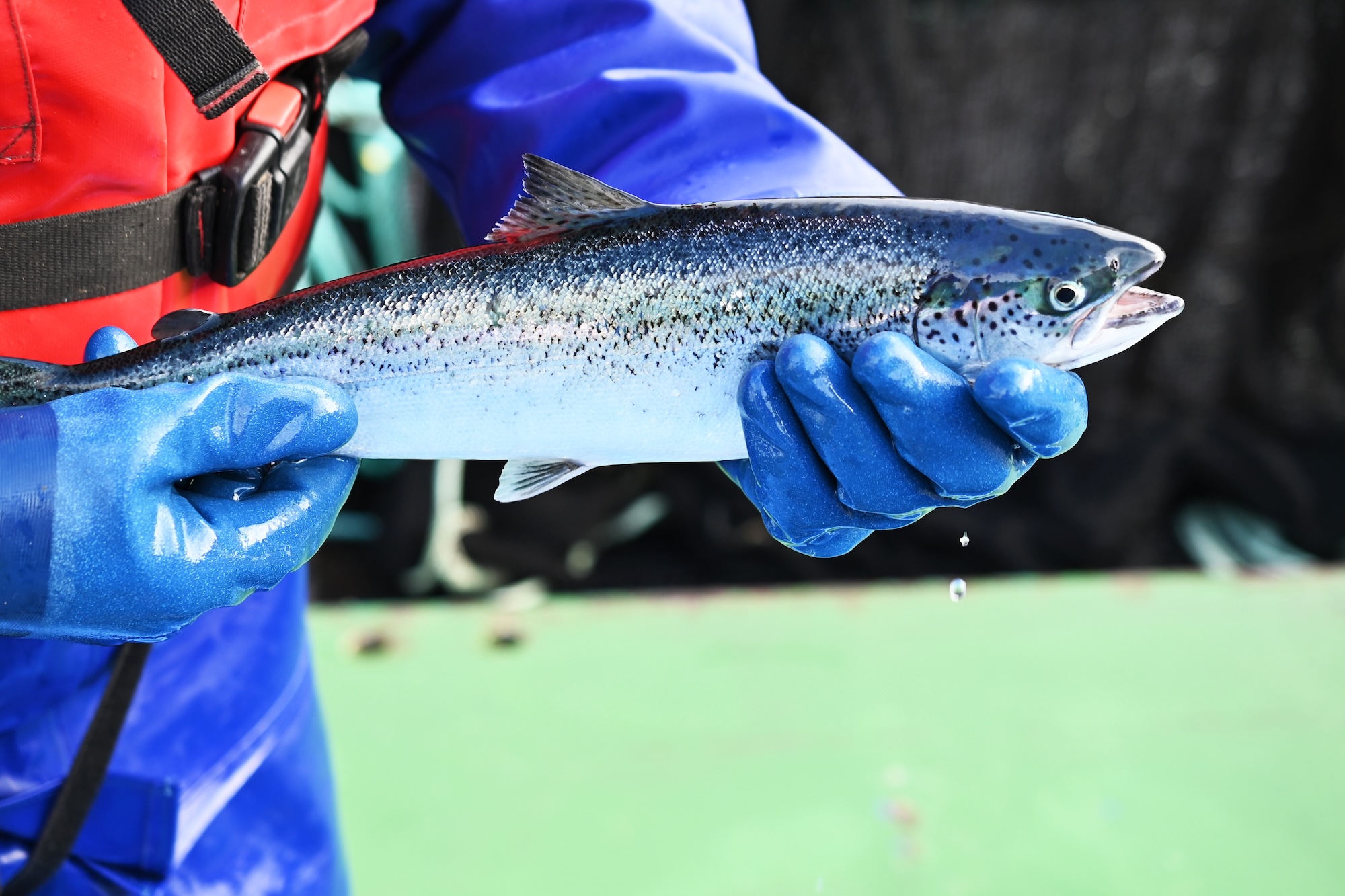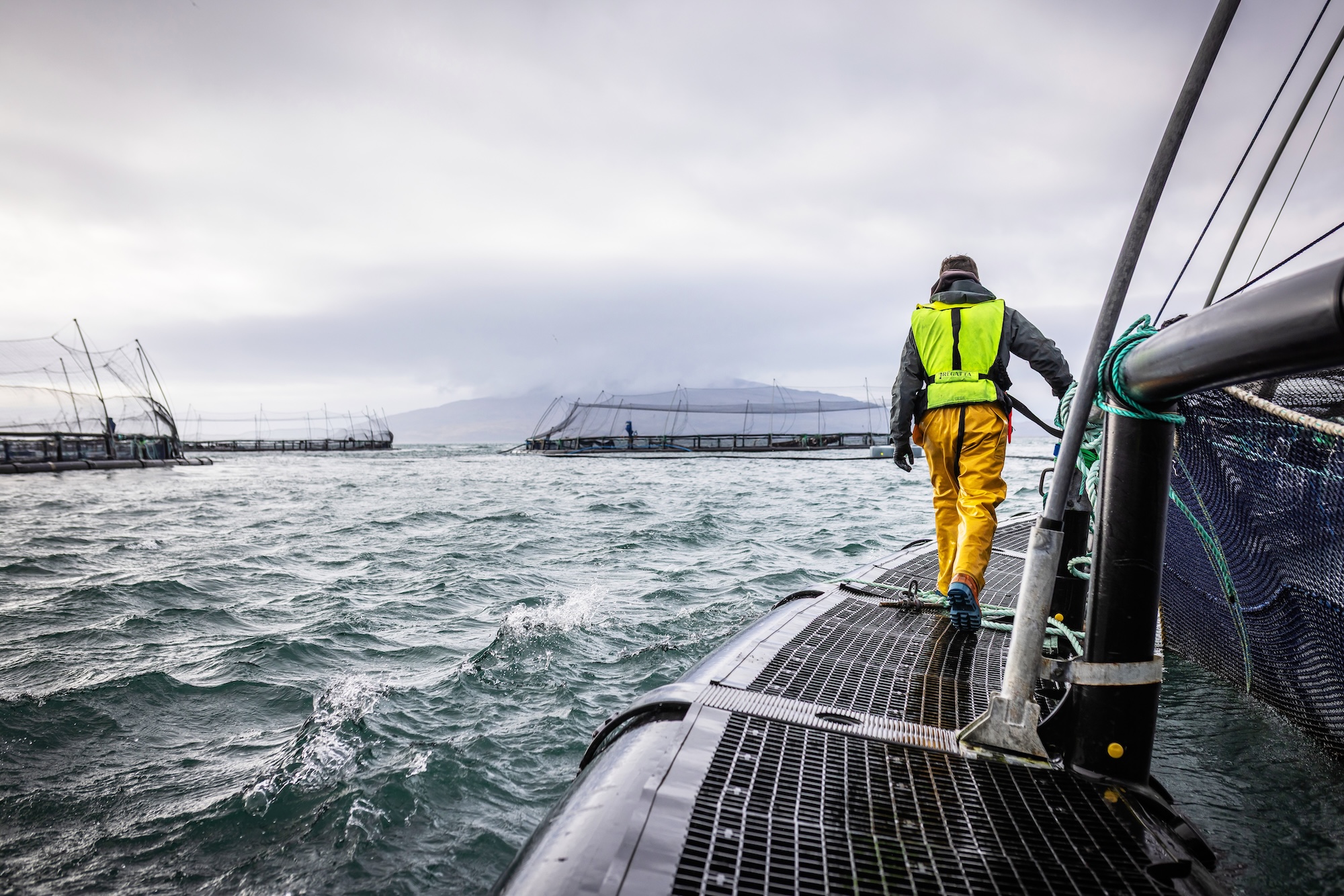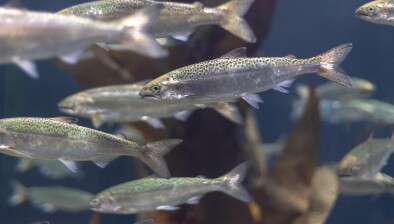Scottish salmon sector now worth £1bn to economy

Scotland’s salmon industry now contributes £1 billion annually to Scotland’s economy, a new independent study has revealed.
Analysis from BiGGAR Economics for Salmon Scotland shows the sector is one of the most important rural economic engines and a vital anchor for jobs, investment, and supply chain businesses across Scotland.
Its economic contribution has increased by a quarter over the past four years, driven by rising domestic and international demand.
The new report also finds salmon farming jobs pay an average of about £44,500, around 16% above Scotland’s typical salary, generating at least £37 million in tax last year, with more through the supply chain.

Pictured (L-R): Salmon Scotland CEO Tavish Scott; Iain Laister, managing director, Bakkafrost Scotland; Deputy First Minister Kate Forbes; Ben Wilson, managing director, Inverlussa Marine Services; Ben Hadfield, chief operating officer, farming in Scotland, Ireland and the Faroes, Mowi
The latest figures have been welcomed by the Scottish Government, with Deputy First Minister Kate Forbes praising the sector’s contribution to jobs and growth during a meeting with sector leaders in Edinburgh on Tuesday, 11 November.
Tavish Scott, chief executive of Salmon Scotland, said the report underlines the hard work of farmers across Scotland’s west coast and islands, with record exports and continued investment driving growth at home and overseas.
Figures from BiGGAR Economics show a direct economic contribution of £231.2m in Gross Value Added (GVA) in 2024.
The sector also indirectly generated a further £589.9m in GVA through its supply chain, supporting jobs in every part of Scotland, including the major cities.

There was an additional £66.5m contribution from investment activity and £65.5m from staff spending, benefiting local businesses and communities all year round.
Taken together, the total economic impact reached £953m, around 25% higher than the £766m recorded by Salmon Scotland in 2021.
Salmon farming provides around 2,500 direct jobs in economically fragile, coastal communities across rural Scotland, with another 8,500 people employed in businesses that depend on the sector.
Deputy First Minister Kate Forbes said: “This report shows the significant benefits that salmon farming provides to our rural communities and beyond. This is more than just an economic headline, it is a testament to the resilience, innovation, and commitment of everyone involved in the industry.
“This is a sector that continues to invest in its people, with average salaries being significantly above the Scottish average. It is also an industry that brings benefits to the country’s wider supply chain.
“The Scottish Government will continue to take bold steps to support the sector’s ongoing sustainable development and to ensure it remains a Scottish success story.”

Tavish Scott
Tavish Scott, chief executive of Salmon Scotland, said: “Scottish salmon continues to generate vital wealth for the country, and especially for our Highland and islands communities.
“Farm-raised salmon is the economic backbone of some of Scotland’s most isolated areas, creating thousands of well-paid jobs and opportunities, and supporting a nationwide supply chain of businesses that depend on its success.
“Everyone in the sector is part of a global success story built on high environmental and welfare standards, producing one of the healthiest and best-tasting foods in the world.
“With record exports, rising demand, and continued investment in innovation, we’re proud that salmon farming now contributes £1 billion a year to Scotland’s economy while sustaining communities across the west coast, islands, and beyond.”
The report also breaks down the economic contribution salmon farming makes to Scotland’s five producing regions:
- £307m across the Highlands
- £100m in Argyll and Bute
- £91m in Shetland
- £39m in the Western Isles
- £30m in Orkney
Nikki Keddie, director of BiGGAR Economics, said: “Our report describes Scottish salmon farming as a vital economic anchor for rural and coastal Scotland, supporting thousands of skilled jobs and a network of businesses across the country.
“It concludes that the sector provides stability and opportunity in fragile rural economies, underpinning year-round employment, investment, and community resilience.
“Each job in salmon farming generates above-average economic value, with productivity well ahead of the national average.”







